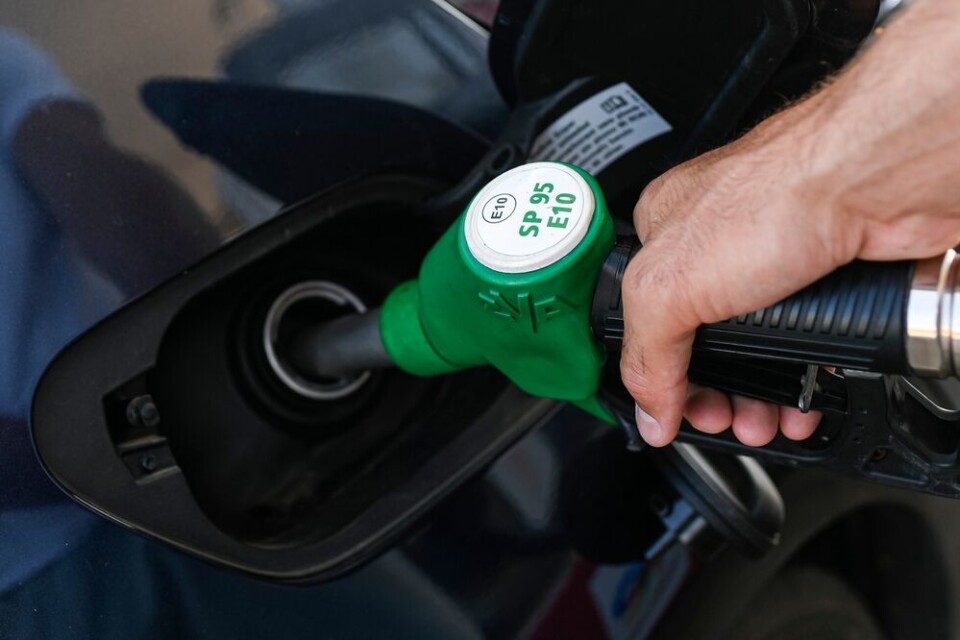-
French crisps brand gains global attention after Dua Lipa post
Singer posted photo of her shopping basket and the only food items were Brets crisps in braised chicken, honey mustard, and ‘Fromage du Jura’ flavours
-
Why supermarkets are urging shoppers to buy French leeks
Try our French classic leek vinaigrette recipe
-
New bill targets skiers under influence of alcohol or drugs
There are not currently any specific rules on skiing while under the influence
Tips on finding low-cost fuel as French petrol prices keep on rising
We look at why rates are so high and how to save money at the pumps

Fuel prices are continuing to rise in France, latest weekly figures from the country’s ecological transition ministry show.
-
SP95-E10 cost an average of €1.8953 per litre for week of July 29 to August 4, up 2.8 cents compared to the week before
-
Super SP95 cost €1.9103, up from €1.893
-
Super SP98 cost €1.9658, up from €1.9418 - almost at the symbolic threshold of €2 per litre
-
Diesel cost €1.8064, up from €1.7399 the week before; a rise of almost seven cents
This means that diesel is now almost as expensive as its peak in 2022, and SP95-E10 now costs more than it did this time last year. Prices are slowly rising towards the records already seen this year (€1.9358 per litre for SP95-E10, and €1.9432 for diesel).
Why are petrol prices so high in France?
Factors include the high cost of Brent crude oil, which has risen from $75 (€68) to $86 (€78) in one month; as well as announcements from Saudi Arabia and Russia that they intend to reduce their fuel production until at least September, even as demand from China increases.
Anna Creti, director of the Climate Economics Chair and professor at the Université Paris Dauphine, told FranceInfo: “This price increase is [the Saudis’] objective. It's to cover production costs, but also to ensure the profitability of a sector that remains the main [business] in the country.”
Prices may also appear high in France due to taxes on fuel, however, differences between countries are less stark now than they were earlier in the year.
Francis Pousse, president of the fuel station branch of the Mobilians trade association, said: “The increase is mirrored in other European countries, so it's not a French problem, even though differences in taxation can explain the different pump prices in different countries.”
However, one expert, Jean-Pierre Favennec, told BFM Business he did not believe that prices would again reach the peak seen in 2022, when a barrel of Brent crude hit the $141 (€128) mark.
The rising prices are in stark contrast to the rate of inflation in France, which has slowed after months of increases, figures from national statistics bureau Insee show. In June, the rate dipped below 5% for the first time since April 2022, and slowed in July, dropping down to 4.3%.
How can I save money at the pumps?
The best way to save is to check and compare local prices.
Consumer association UFC-Que Choisir has an interactive map that shows the latest prices at petrol stations across the country. It also shows the average cost per department.
You can also check the government website prix-carburants.gouv.fr, which has its own interactive map, and lets you select and search by fuel and department, as well as by other petrol station facilities.
The tool also enables you to search for fuel points along a given route, so you can plan to top up your tank at the best price during a journey (for example, if you are driving somewhere on holiday this month).
The website also works on smartphones, so you can check for the cheapest fuel near you while travelling.
You can also save on fuel by changing the way you drive, including driving at a constant speed as much as possible and keeping accelerations to a minimum.
Read more:
How accurate is the website?
The map’s data and prices are regularly updated to give accurate information, and the site uses petrol stations’ own publicly-stated prices on the list. They are already required to publish accurate point-of-sale prices by law.
The website lists all public and open petrol stations selling over 500m³ of petrol per year. It includes independent stations as well as big supermarkets. 500m³ of sales is the threshold after which stations must display accurate prices by law.
It is then up to each fuel station's manager to ensure prices of petrol and diesel listed on the government website are accurate and up to date.
The government's financial watchdog, the Direction générale de la Concurrence, de la Consommation et de la Répression des fraudes is responsible for monitoring and ensuring that qualifying petrol stations in France declare their latest prices on the site - and on the forecourt.
Smaller stations can also nominate themselves for inclusion on the list if they do not already appear, and members of the public can flag up missing or now-closed petrol stations for inclusion/deletion, too, or differences in prices between the website and the forecourt via a contact form on the site.
Read also
Fuel shortage in France: Tips on how to save petrol consumption
French supermarket chain to sell cheaper fuel on summer weekends
























